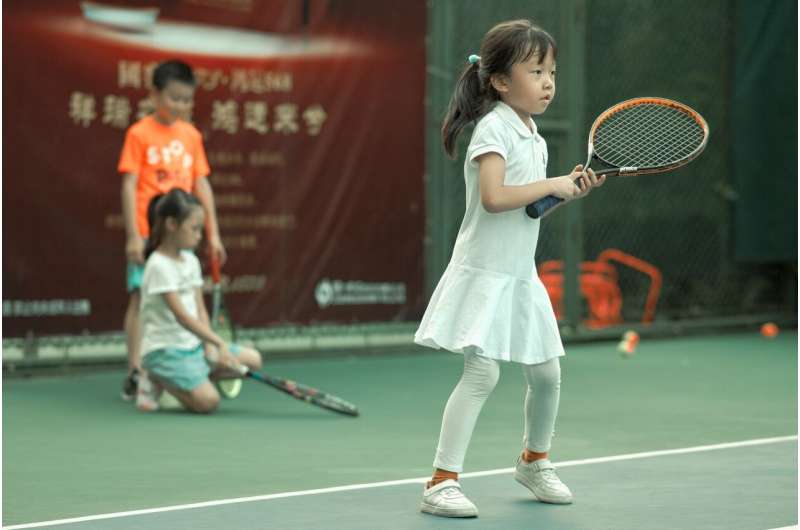This article has been reviewed according to Science X's editorial process and policies. Editors have highlighted the following attributes while ensuring the content's credibility:
fact-checked
trusted source
proofread
Explicit socioemotional learning can have a key role in physical education lessons, study says

Teachers might be more motivated to help students engage with their emotions and build their resilience when this work is part of lessons, rather than as an add-on intervention, a new study has found.
Using socioemotional learning to support children to develop communication skills, handle stress and accept failure works best as part of everyday teaching—rather than when it is not organically linked to the school life and curriculum, reseachers have said.
The study, by Eleni Dimitrellou, George Koutsouris and Alison Pearson from the University of Exeter's School of Education, is published in the journal Pastoral Care in Education.
Dr. Dimitrellou said, "There is a need to explicitly introduce socioemotional oriented teaching in secondary education to ensure young adolescents enjoy positive short-term and long-term outcomes linked with positive attitudes toward self and others, positive behavior, well-being and academic success."
Dr. Koutsouris added, "Teachers felt a curriculum based around social and emotional learning had a place not only in primary where some think it might be more suited but in secondary schools as well. These are skills learned in a developmental continuum where students need to cultivate some basic skills first before being in the position to develop more complex ones.
"Teenagers are more likely to experience emotional challenges, and even if they are equipped with effective strategies to regulate their emotions in primary education they should be able to access this form of support in secondary school."
Academics worked in partnership with one mainstream secondary school in the South West of England for two months during the summer term in 2022. Two teacher trainees and one qualified PE teacher designed, evaluated, and planned a sequence of four lessons focusing on integrating socioemotional-oriented teaching in PE using a lesson study approach, originating in Japan.
As part of the study, PE teachers worked together with students in a range of activities. In one case the PE teachers taught students team building by asking them to work together in pairs to climb a wall while one of them was blindfolded. At the start of the activity, students had to discuss and agree on a strategy to meet this target. In the end, they had to reflect on their abilities and discuss what went well and wrong and how things could have been done differently.
Two distinct views among participating teachers emerged. One one hand, there was a view that the core structure and content of the subject should remain unchanged. Experienced teachers involved in this discussion questioned the introduction of socioemotional oriented teaching in PE lessons, expressing concerns that it might prevent children from learning physical development skills.
However, teacher trainees seemed more open to recognizing the benefits that explicitly teaching social and emotional skills might bring to students. There was the belief that students who struggle, especially emotionally and socially, might reap more benefits from such an approach. This might reflect how emotions and mental health are more openly discussed by younger generations.
More information: Eleni Dimitrellou et al, Has the explicit teaching of emotions a place in the secondary school curriculum? a small-scale PE-based study, Pastoral Care in Education (2024). DOI: 10.1080/02643944.2024.2320674
Provided by University of Exeter





















